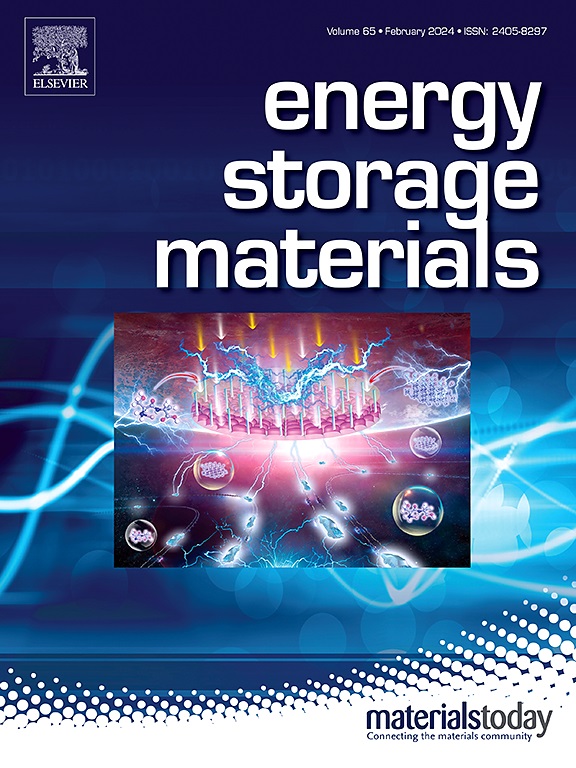Evolution of coordinated chemical innovations: A road to chlorine-free magnesium electrolyte system
IF 18.9
1区 材料科学
Q1 CHEMISTRY, PHYSICAL
引用次数: 0
Abstract
Rechargeable magnesium batteries are recognized as compelling candidates for advanced energy storage technologies, offering economic viability, exceptional safety, and remarkable volumetric energy density. Despite these merits, the deployment of magnesium batteries is hindered by limited insights into solvation dynamics and ion transport within electrolytes. Electrolytes incorporating chloride additives demonstrate efficacy in reducing the passivation layer and achieving higher cycling life. Nevertheless, their corrosive nature poses compatibility challenges with battery components, obstructing scalable commercial adoption. In response, contemporary efforts have shifted toward chlorine-free electrolytes to circumvent these constraints. This comprehensive review critically analyzes Mg-Cl coordination chemistry while advocating for innovative chlorine-free electrolytes. The discussion subsequently evaluates cutting-edge advancements in chlorine-free electrolytes, emphasizing innovative strategies in electrolyte composition (e.g., weakly coordinating anions, non-nucleophilic solvents) to enhance Mg2+ ion transport and interfacial compatibility. Concurrently, research advances related to the interface between chlorine-free electrolytes and anodes are presented. This work establishes actionable guidelines for the next generation of high-performance magnesium batteries.


协同化学创新的演变:通往无氯镁电解质体系的道路
可充电镁电池被认为是先进储能技术的有力候选者,具有经济可行性、卓越的安全性和卓越的体积能量密度。尽管有这些优点,但由于对电解质中的溶剂化动力学和离子传输的了解有限,阻碍了镁电池的部署。含氯添加剂的电解质在减少钝化层和实现更高的循环寿命方面表现出有效性。然而,它们的腐蚀性给电池组件的兼容性带来了挑战,阻碍了可扩展的商业应用。作为回应,当代的努力已经转向无氯电解质来绕过这些限制。这篇全面的综述批判性地分析了Mg-Cl配位化学,同时倡导创新的无氯电解质。讨论随后评估了无氯电解质的前沿进展,强调了电解质组成的创新策略(例如弱配位阴离子、非亲核溶剂),以增强Mg 2 +的离子传输和界面相容性。同时介绍了无氯电解质与阳极界面的研究进展。这项工作为下一代高性能镁电池建立了可操作的指导方针。
本文章由计算机程序翻译,如有差异,请以英文原文为准。
求助全文
约1分钟内获得全文
求助全文
来源期刊

Energy Storage Materials
Materials Science-General Materials Science
CiteScore
33.00
自引率
5.90%
发文量
652
审稿时长
27 days
期刊介绍:
Energy Storage Materials is a global interdisciplinary journal dedicated to sharing scientific and technological advancements in materials and devices for advanced energy storage and related energy conversion, such as in metal-O2 batteries. The journal features comprehensive research articles, including full papers and short communications, as well as authoritative feature articles and reviews by leading experts in the field.
Energy Storage Materials covers a wide range of topics, including the synthesis, fabrication, structure, properties, performance, and technological applications of energy storage materials. Additionally, the journal explores strategies, policies, and developments in the field of energy storage materials and devices for sustainable energy.
Published papers are selected based on their scientific and technological significance, their ability to provide valuable new knowledge, and their relevance to the international research community.
 求助内容:
求助内容: 应助结果提醒方式:
应助结果提醒方式:


